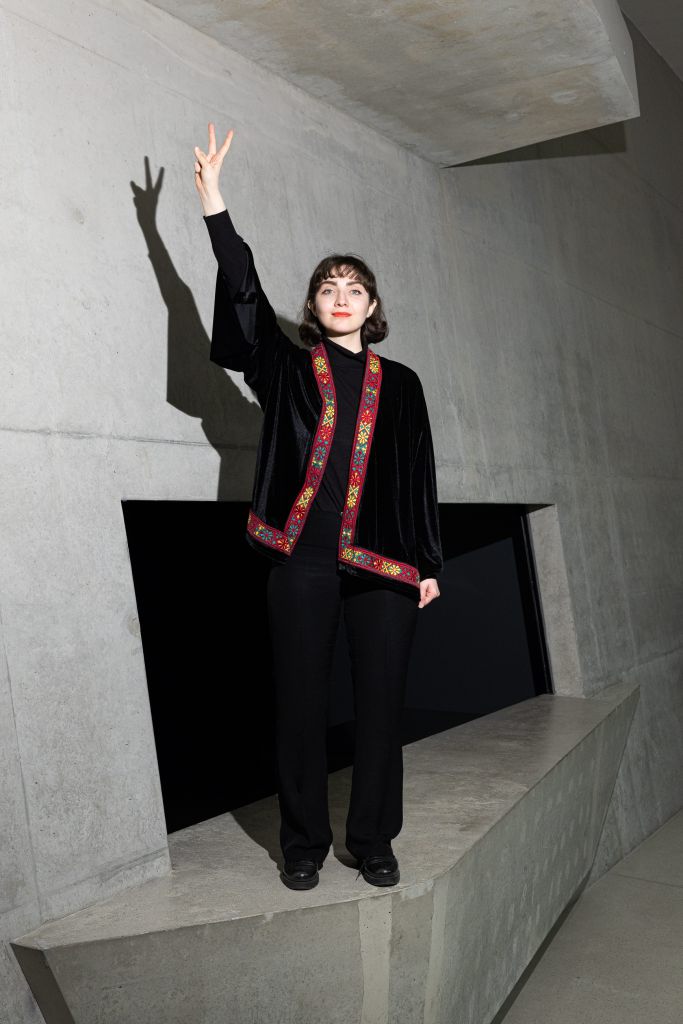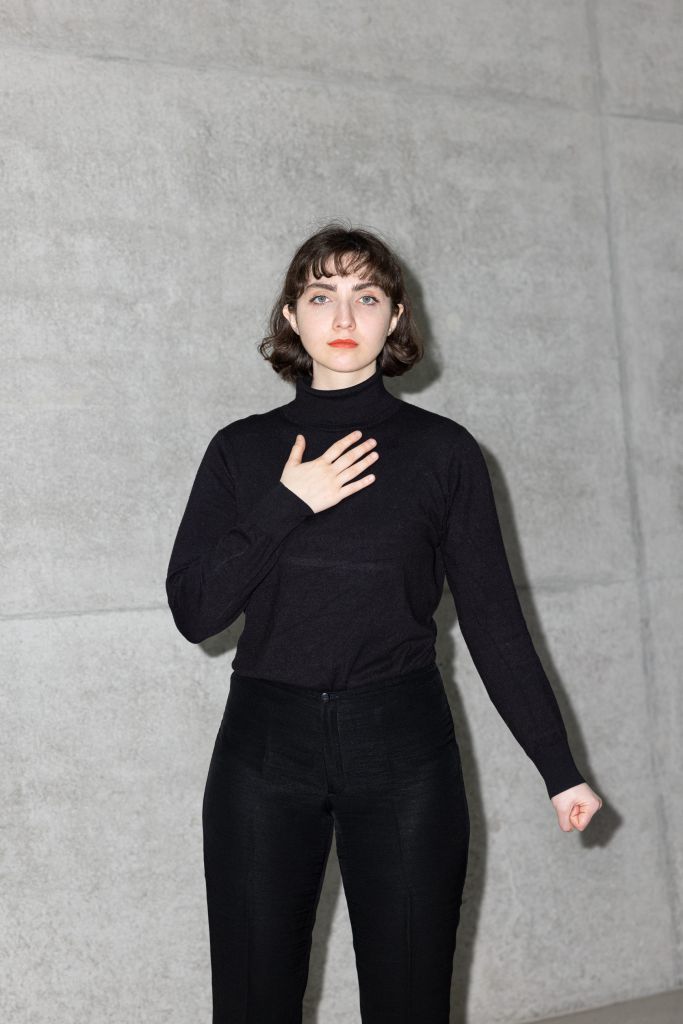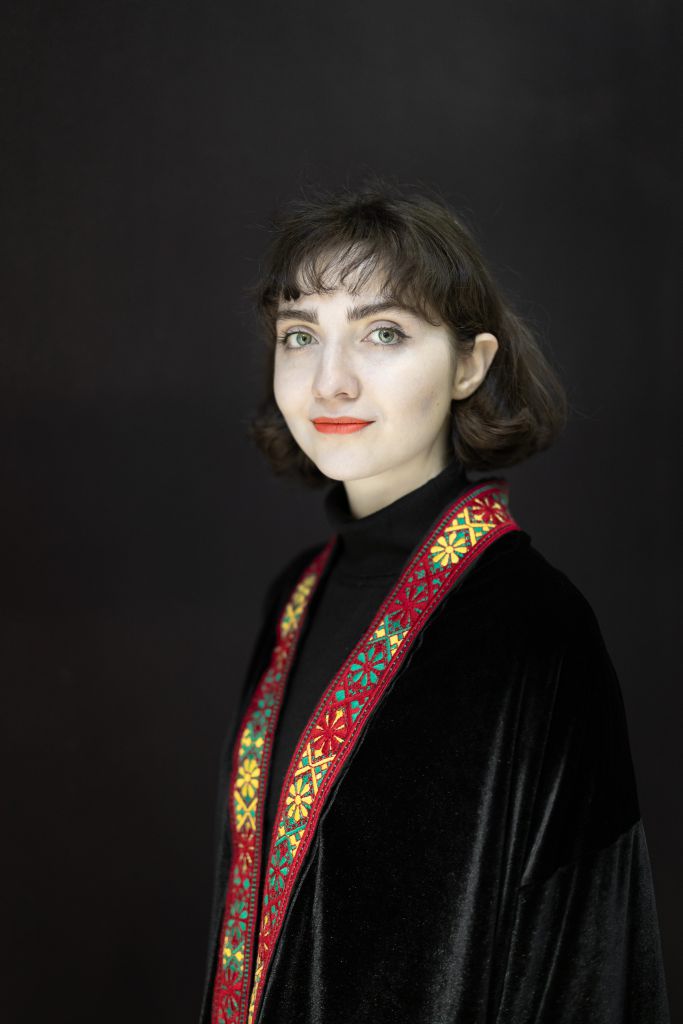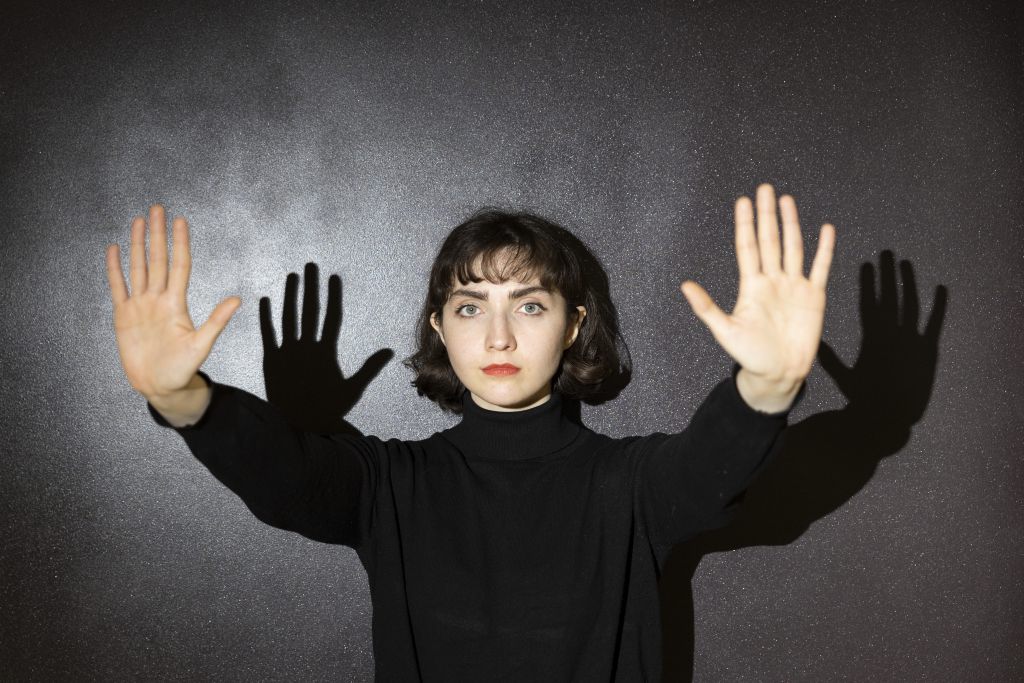Studiert an der mdw seit: 2017
Studienfach: Masterstudium Instrumental(Gesangs)Pädagogik Klavier (Klassik)

Lieblingsort an der mdw und warum: Der Campus ist mein Lieblingsort, vor allem im Sommer, wenn der Innenhof mit seinen grünen Bäumen Schatten spendet und eine angenehme Umgebung schafft. Obwohl es ein lebendiger Ort ist, der von vielen besucht wird, kann man sich hier einen ruhigen Moment gönnen, um den Geist zu erfrischen und Energie zu tanken. Und es ist toll, dass das hmdw-Büro in der Nähe ist, um eine leckere Tasse Kaffee zu genießen und die Energie für den Tag aufrechtzuerhalten.
Lieblingsort in Wien: Ich habe verschiedene Lieblingsorte, die ich in verschiedenen Stimmungen besuchen würde, aber die Donauinsel ist ein Ort, an dem ich immer gerne bleibe. Sie bietet eine wunderschöne und friedliche Umgebung für verschiedene Outdoor-Aktivitäten wie Laufen, Radfahren oder Schwimmen.

Was ich gerne gleich zu Beginn des Studiums gewusst hätte: Ich hätte gerne gewusst, dass ich an die Möglichkeiten, die die mdw und die hmdw bieten, glauben und sie aktiv nutzen soll, um Projekte und Ideen umzusetzen. Mit Engagement und Kreativität können wir als Studierende oft Erstaunliches erreichen und wertvolle Erfahrungen sammeln, die uns im Studium und im Beruf zugutekommen. Das habe ich bei der Organisation des Frauentagskonzerts der hmdw deutlich bemerkt.
Wenn ich musiziere und mich von der Musik mitreißen lasse und in sie eintauche, weiß ich, dass es nichts Unmögliches auf der Welt gibt, weil ich die Prinzipien der Schöpfung ausübe – selbst wenn es nur für ein paar Stunden oder Minuten in einem kleinen Übungsraum an der Universität ist. So weiß ich, dass ich einen weiteren Schritt in Richtung Selbsterkenntnis und Selbstbestimmung getan habe.

Eine Frage, die mich derzeit sehr beschäftigt, ist die Frage nach der Rolle von Musik, Kunst und allgemein der Kultur in der Politik. Es ist wichtig, dass wir uns bewusst sind, dass Musik und Kunst in der Regel nicht neutral sind und zu beachten, dass sie immer ein Produkt ihrer Zeit und Gesellschaft sind und nicht von diesen getrennt betrachtet werden können. Insofern sind Künstler_innen und Musiker_innen oft stark von den politischen und sozialen Umständen beeinflusst, in denen sie leben, und ihre Werke sind ein Ausdruck davon. Jedoch ist es nicht immer einfach zu sagen, wo die feine Grenze zwischen politischer Manipulation (im positiven wie im negativen Sinne) und künstlerischer Freiheit verläuft. Ein Musikstück kann einen Blick auf die politische Situation werfen, aber sollte nicht ausschließlich davon leben, sondern auch künstlerische und ästhetische Qualitäten besitzen, die es zu einem einzigartigen und interessanten Kunstwerk machen. Die Bedeutung und die Botschaft eines Musikstücks können sicherlich verstärkt werden, wenn es einen Bezug zur politischen Situation herstellt, aber es gibt keine absolute Regel, dass dies der Fall sein muss. Letztendlich hängt es von den kreativen Entscheidungen der Komponist_innen und der Interpretation der Zuhörer_innen ab.

Welche Bedeutung hat Protest deiner Meinung nach für die Kunst? Künstler_innen haben im Laufe der Geschichte oft ihre Kunst genutzt, um politische und soziale Veränderungen zu fördern und auf Ungerechtigkeiten aufmerksam zu machen. Für die Iraner_innen, die unter dem Druck der Diktatur leben, sind Musik und Kunst nicht nur eine intellektuelle, abstrakte oder philosophische Plattform. Wir nutzen Kunst seit Jahrzehnten, um unseren Widerstand und unseren Kampf gegen die Diktaturen zu zeigen und unsere Botschaft der Freiheit zu vermitteln. Daher sind Musiker_innen und Künstler_innen ständig vom Regime bedroht. Kunst muss nicht zwangsläufig politisch sein, aber sie hat die Macht, politische und soziale Veränderungen zu unterstützen und zu initiieren. Unter dem Druck der Diktaturen wirkt die Kunst wie Sauerstoff für das Feuer des Volkes.
Inwiefern ist Protest im Rahmen deiner künstlerischen Tätigkeit wichtig und warum? Wenn ich daran denke, wie viele Musiker_innen gerade im Iran ihre Aktivitäten nicht fortsetzen können, weil sie verhaftet wurden oder aufgrund ihrer politischen Ansichten verschiedenen Einschränkungen unterliegen, muss ich darüber nachdenken, wie ich meine soziale Verantwortung wahrnehmen kann, um eine Stimme für Veränderungen zu erheben, um mich mit ihnen solidarisch zu zeigen. Damit wir in einem freien Iran mit unterschiedlichen politischen Ansichten musizieren können und keine Veranstaltung aufgrund unserer politischen Ansichten absagen müssen. Insofern ist Protest im Rahmen meiner künstlerischen Tätigkeiten ganz wichtig, um die Klänge unserer Solidarität und die Stimmen unseres Widerstands zu demonstrieren.

